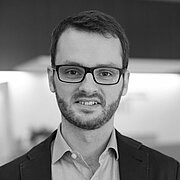How ‘lone’ do lone-actor terrorists tend to be?
Paul Gill presents important insights into lone-actor terrorists’ behaviours and their possible implications for disrupting or even preventing attacks. Based on research from criminology and forensic psychology he provides a holistic analysis of the behavioural underpinnings of lone-actor terrorism. Is there a lone-actor terrorist profile and how do they differ? What behaviours did the lone-actor terrorist engage in prior to an attack and is there a common behavioural trajectory into lone-actor terrorism? What role, if any, does mental illness play? How ‘lone' do lone-actor terrorists tend to be?
Guest speaker

Paul Gill is Professor of Security and Crime Science at University College London. He has over 80 publications on the topic of terrorist behaviour. He has conducted research funded by the Office for Naval Research, the Department of Homeland Security, DSTL, the European Union, the National Institute of Justice, CREST, Public Safety Canada and MINERVA. He currently manages European Research Council Starter Grant project entitled GRIEVANCE. Collectively these grants have been worth over 9 million euro. These projects focused upon various aspects of terrorist behavior including the IED development, creativity, terrorist network structures, risk assessment and management, and lone-actor terrorism. His doctoral research focused on the underlying individual and organizational motivations behind suicide bombing. This piece of research won the Jean Blondel Prize for the best Ph.D. thesis in Political Science in Europe for 2010. He has published in leading psychology, criminology and political science journals.
Chair

Julian Wucherpfennig is Professor of International Affairs and Security at the Hertie School. His research focuses on the strategic nature of political violence and conflict processes, especially ethnic civil war and terrorism. He has been an Assistant Professor and Programme Director for Security Studies at University College London, and a postdoctoral research fellow at ETH Zurich, Switzerland, from where he holds a PhD (2011) and an MA (2008) in political science. He has also been a Research Associate at the Gallup Organisation Europe. His PhD on ethnic conflict was awarded the ECPR Jean Blondel Prize.
About the 'Frontline research on terrorism' event series
This event is hosted as part of the Centre for International Security lecture series 'Frontline research on terrorism' at the Hertie School. The threat of terrorism is widely seen as one of the most pressing issues of our times. Yet the debate continues to be dominated by rumours, subjective opinions and emotions, rather than scientifically established facts. To strengthen the basis for political decision making, the event series aims to provide a realistic view of current and future scenarios based on the scientific findings of experts who study terrorism.

